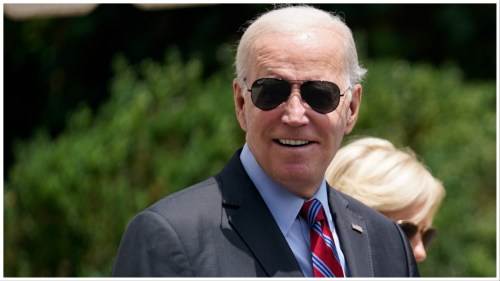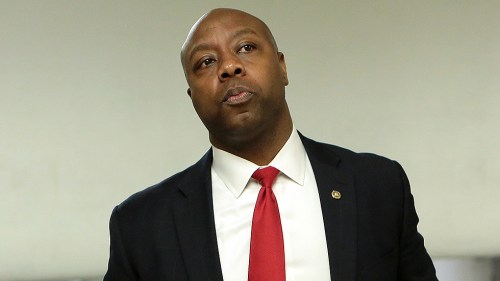Abortion battle to play out on multiple fronts in November
A battle over abortion rights is set to play out on multiple fronts this coming November with votes that could affect access to the procedure in several states.
Voters will go to the polls for key elections in half a dozen states this year, but abortion rights advocates in particular are looking at votes in Ohio, Pennsylvania and Virginia.
Those states are already being seen as bellwethers for where the country stands on the issue heading into 2024, as Democrats hope to rally voter anger from the overturn of Roe v. Wade.
The most direct vote on abortion will come In Ohio with a measure on the ballot that would protect abortion rights in the state up to the point of viability, which usually comes just past halfway through a pregnancy.
“Abortion is going to continue to be a galvanizing reason for Ohio voters and voters in states across the country to turn out to vote. It’s incredibly important, and without the federal protection of Roe vs. Wade, it is up to individual voters to make this decision for themselves,” said Lauren Blauvelt, the vice president of government affairs and public advocacy for Planned Parenthood Advocates of Ohio.
But the contests in Virginia and Pennsylvania will also be seen as proxy elections for the broader battle over abortion rights.
Virginia Gov. Glenn Youngkin (R) has devoted much of his time and energy to working to help elect Republicans in this November’s state legislative races. He received a political boost in June after the slate of candidates he endorsed for these seats won their primaries.
But Youngkin has been unable to achieve the 15-week abortion ban he has called for with Democrats controlling the state Senate and Republicans controlling the state House.
Multiple sources familiar with Youngkin’s plans told NBC that passing such a bill, with exceptions for rape, incest and protecting the life of the mother, would be among his priorities if the GOP wins control of both houses.
The governor’s plans make the upcoming elections, in which all seats in both houses will be up for grabs, key to the future of abortion access in Virginia.
Pennsylvanians, meanwhile, will vote to fill a vacancy on the state Supreme Court left by the death of former Chief Justice Max Baer last year. Democrat Daniel McCaffrey is facing Republican Carolyn Carluccio, with Democrats looking to expand their 4-2 majority on the court and the GOP looking to close the gap.
The election will therefore not determine which party controls the court immediately but could be influential in the longer term.
Pennsylvania-based strategists said the election itself is also not as critical to abortion rights because the state legislature is split between the parties and Democratic Gov. Josh Shapiro has vowed to protect abortion access, so the court would likely not imminently have any abortion ban to review.
But they said the issue will likely play at least some role in the race with Democrats seeking to capitalize on the party’s success running on it during last year’s midterm elections.
Gubernatorial races are also happening in three conservative-leaning states: Kentucky, Louisiana and Mississippi. But all three are states with dominant GOP control of the legislature that have already severely restricted abortion, so the outcomes of those races would likely not affect abortion access.
But advocates in Ohio are trying to rally enthusiasm to pass the abortion measure and topple the state’s six-week ban that went into effect after Roe was overturned before being paused last fall. They successfully defeated a ballot measure in August that would have raised the threshold to amend the state constitution and make approving abortion protections more difficult.
Ohio Secretary of State Frank LaRose (R) was a fierce advocate of that measure and opposes the abortion one. The most recent front in the process came after the state elections board, which LaRose leads, approved new language summarizing the amendment that would appear on the ballot.
The changes include referencing an “unborn child” instead of a “fetus” and “pregnant woman” instead of “pregnant patient.”
Blauvelt said the changes demonstrate what “anti-abortion politicians are willing to do” to try to stop the amendment from passing. She said the text of the amendment is “fairly short” and did not need to be summarized.
“That is very purposefully anti-abortion propaganda is meant to be misleading and confusing, and that is certainly a deep concern,” she said.
Abortion rights supporters have filed a lawsuit to the state Supreme Court to challenge the changes, arguing they were meant to mislead voters.
LaRose’s office pushed back against the lawsuit in a statement to The Hill after it was filed, saying that the board was following its constitutional requirement to adopt a summary of the measure, and the language chosen meets that requirement.
Blauvelt said the coalition behind the abortion measure, Ohioans for Reproductive Freedom, is prepared to continue speaking with voters regardless of the outcome of the lawsuit and expects to be successful in getting the amendment approved.
Ohio-based GOP strategist Nick Everhart agreed that he would expect the abortion measure to pass even if the language from the board stands. He said the state has many college-educated voters who are “just are not in sync with sort of some of these under 15-week abortion laws.”
In the year since Roe was overturned, ballot measures have come up in several states across the political spectrum, and the side in favor of abortion rights has won each of them.
“There’s a huge delta between being a GOP [Republican] state and then winning on some of these more stringent abortion issues,” Everhart said.
But he added that he believes the issue could be less important for Republican candidates running in states like Virginia, where he said they only need to not completely ignore the issue. He said GOP candidates running in the state’s legislative races should have an answer ready if they are asked about it and can then focus on messaging that will help them win.
Pennsylvania Republican strategist Josh Novotney said he does not expect abortion to play as significant of a role in the state this year as it did last year, when state Sen. Doug Mastriano, who opposes abortion without exception, was the GOP nominee.
He said Mastriano’s candidacy was “definitely a motivator” for swing voters in the suburban parts of the state to vote against him and other Republicans. He said Democrats will “100 percent” try to run on abortion because the strategy was effective in 2022, but they will have a tougher challenge because there is no far-right candidate like Mastriano on the ballot.
“There’s really probably less of a motivator. It’s less raw in the last year than straight after the ruling,” Novotney said, referring to the end of Roe.
Daniel Fee, a Democratic strategist from Pennsylvania, noted that the “immediacy of the threat” to abortion rights is not present in the Keystone State as it is in other states. He said the state Supreme Court would not have a role to play unless legislation on the issue passes, which would not happen with the current makeup of the state government.
He drew a difference from Justice Janet Protasiewicz’s election earlier this year in Wisconsin that gave Democrats a majority in the state Supreme Court and could lead to an 1800s-era abortion ban being struck down.
Republicans in the state legislature have pushed for a constitutional amendment to ban abortion, but that process would not involve the court. Constitutional amendments also must pass in consecutive legislative sessions before going to the voters, so the Democratic-controlled state House would likely prevent that from advancing.
But Fee added that because the justices are elected to 10-year terms, abortion still will and should be talked about because it could be relevant in the future.
“Is it an important issue that should be fully debated in this fall’s elections? 100,000,000 percent, because they’re 10-year terms. So there is a strong possibility that the next Supreme Court justice would have a vote [on abortion] at some point in theory,” he said.
Copyright 2023 Nexstar Media Inc. All rights reserved. This material may not be published, broadcast, rewritten, or redistributed. Regular the hill posts












